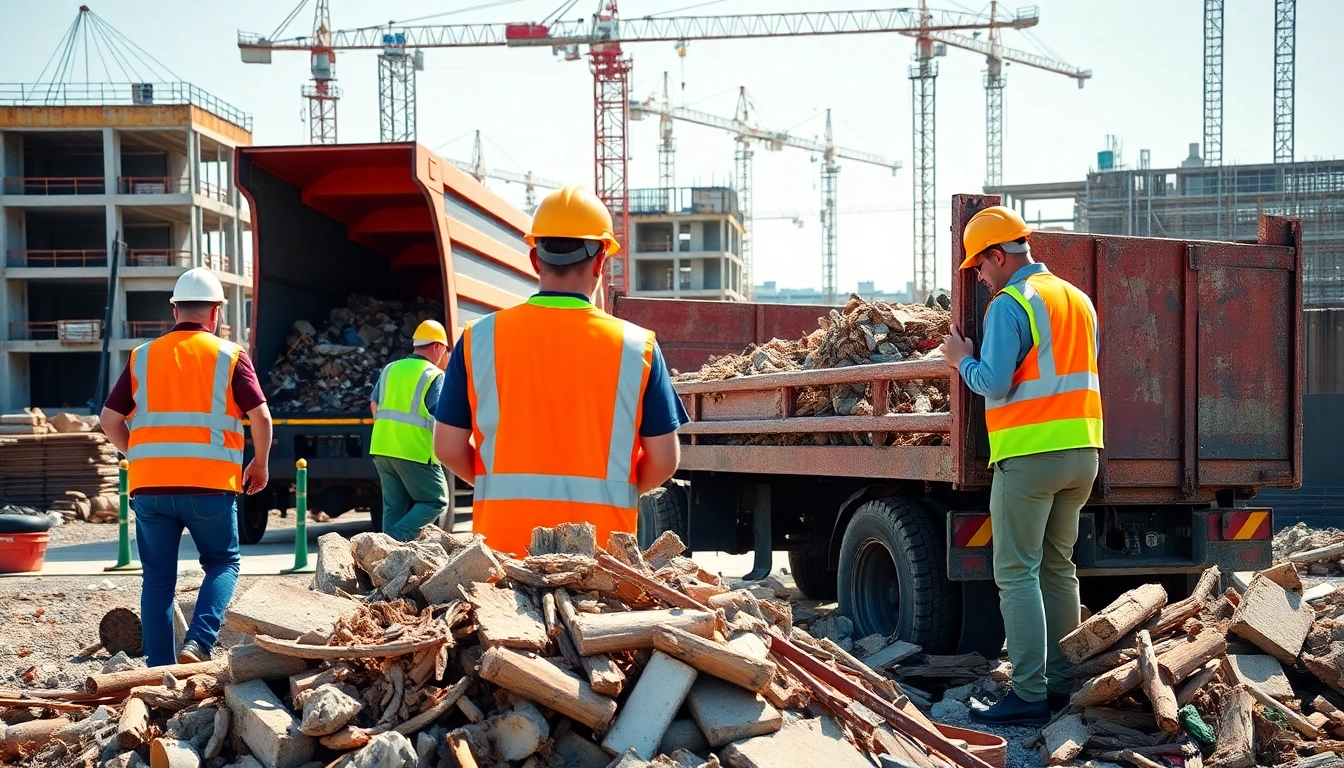
Understanding Builder Rubbish Removal Services
What Are Builder Rubbish Removal Services?
Builder rubbish removal services are specialized waste management solutions tailored for the construction and renovation industry. These services facilitate the disposal of debris, materials, and other waste generated during construction projects, ensuring that sites are kept clean, safe, and compliant with regulations. This encompasses the removal of various types of materials, ranging from bricks and concrete to timber and metals. By utilizing Builder Rubbish Removal Services, builders and contractors can maintain a more organized and efficient work environment while adhering to local waste disposal laws.
Importance of Builder Rubbish Removal Services
Builder rubbish removal is crucial for several reasons. Firstly, construction sites can accumulate hazardous materials that need immediate disposal to avoid injuries or accidents. Secondly, clear sites contribute significantly to project timelines, enabling teams to work more efficiently without distractions caused by clutter. Additionally, failing to manage waste properly can result in hefty fines due to non-compliance with local regulations, making these services not just beneficial, but essential.
Common Types of Waste Handled
Construction projects generate a diverse array of waste materials, and understanding the common types is important for effective waste management. Here are some prevalent categories:
- Concrete and Masonry: Remnants from walls, foundations, and other structures.
- Wood and Timbers: Offcuts, broken pallets, and used beams.
- Metals: Scrap iron, aluminum, and other metal remnants.
- Plastics: Packaging materials, pipes, and various plastic components.
- Hazardous Waste: Materials such as asbestos, lead paint, and chemicals that require special handling.
Key Benefits of Utilizing Builder Rubbish Removal Services
Enhancing Project Efficiency
One of the primary benefits of engaging builder rubbish removal services is the enhancement of project efficiency. A clutter-free site facilitates better workflow, enabling workers to focus on their tasks without the distraction of excessive debris. With a dedicated team managing waste, construction crews can dedicate more time to their core activities, leading to faster project completion times.
Minimizing Environmental Impact
Utilizing professional rubbish removal services contributes positively to the environment. Many service providers prioritize recycling and environmentally-friendly disposal methods. By diverting waste from landfills and promoting recycling, they help minimize the overall environmental footprint associated with construction activities. This is especially vital in today’s context, where sustainable practices are increasingly valued.
Cost-Effectiveness of Professional Services
While some may view outsourcing rubbish removal as an unnecessary expense, in reality, these services can prove to be highly cost-effective. By ensuring efficient waste disposal, businesses can avoid fines for regulatory non-compliance, reduce potential delays from site clutter, and minimize the risk of accidents, which can incur significant costs.
Choosing the Right Builder Rubbish Removal Services
Evaluating Service Providers
When looking for builder rubbish removal services, it’s essential to evaluate potential providers rigorously. Key factors to assess include their experience in the industry, customer reviews, and service range. Companies with a proven track record are more likely to deliver reliable and efficient services tailored to the unique demands of construction projects.
Factors to Consider: Pricing and Capacity
Pricing structures among rubbish removal services can vary significantly. It’s crucial to understand whether providers charge by volume, weight, or type of waste. Additionally, assessing their capacity to handle large-scale projects is vital. Ensure that the chosen service can accommodate the specific needs of your project, including potential fluctuations in waste generation.
Checking for Certifications and Compliance
Before finalizing a rubbish removal service provider, confirm that they possess the necessary certifications and licenses. Compliance with local waste management regulations is essential for ensuring that waste is handled appropriately and responsibly. Companies that adhere to these legal requirements demonstrate their commitment to professionalism and safety.
Best Practices for Effective Waste Management
Sorting and Categorizing Waste
An organized waste management process begins with sorting and categorizing waste on-site. Each type of material should be disposed of per its specific requirements, thus enhancing recycling and waste reduction efforts. Implementing a clear system for waste sorting can significantly streamline the rubbish removal process.
Ensuring Safety During Waste Removal
Safety should always be a priority during waste removal. Ensure that all personnel involved in the waste collection are equipped with appropriate personal protective equipment (PPE). Additionally, training programs focused on safe handling of hazardous materials must be conducted regularly to mitigate risks.
Regulatory Compliance and Documentation
Keeping thorough documentation of waste disposal practices is crucial for compliance with local regulations. This includes maintaining records of waste types, quantities removed, and methods of disposal. Such documentation is not only necessary for legal purposes but also helps in tracking waste management performance and areas for improvement.
Measuring the Impact of Builder Rubbish Removal Services
Key Performance Indicators (KPIs) to Track
To assess the effectiveness of builder rubbish removal services, it’s important to establish Key Performance Indicators (KPIs). Metrics to monitor may include:
- Waste Diversion Rate: The percentage of waste being recycled or reused instead of sent to landfills.
- Cost Savings: Analyzing savings achieved through efficient waste management practices.
- Time Efficiency: Tracking project timelines against waste removal activities to gauge overall impact on efficiency.
- Safety Records: Monitoring accidents or incidents related to waste management on site.
Client Testimonials and Case Studies
Collecting client testimonials and case studies can provide valuable insights into the effectiveness of rubbish removal services. By showcasing successful waste management strategies implemented on previous projects, service providers can present evidence of their capabilities and reinforce their value proposition to potential clients.
Evaluating Overall Project Success
Ultimately, the success of a construction project hinges on multiple factors, with effective waste management being one of the most critical. Evaluating how builder rubbish removal services contribute to overall project outcomes allows for continuous improvement and better decision-making in future projects. Factors such as improved safety, enhanced efficiency, and cost-effectiveness can be indicators of successful waste management practices.






